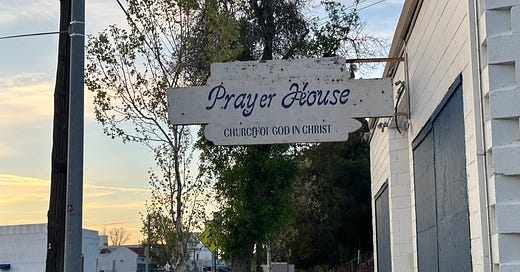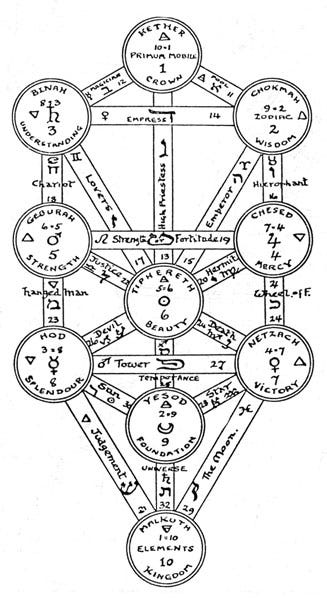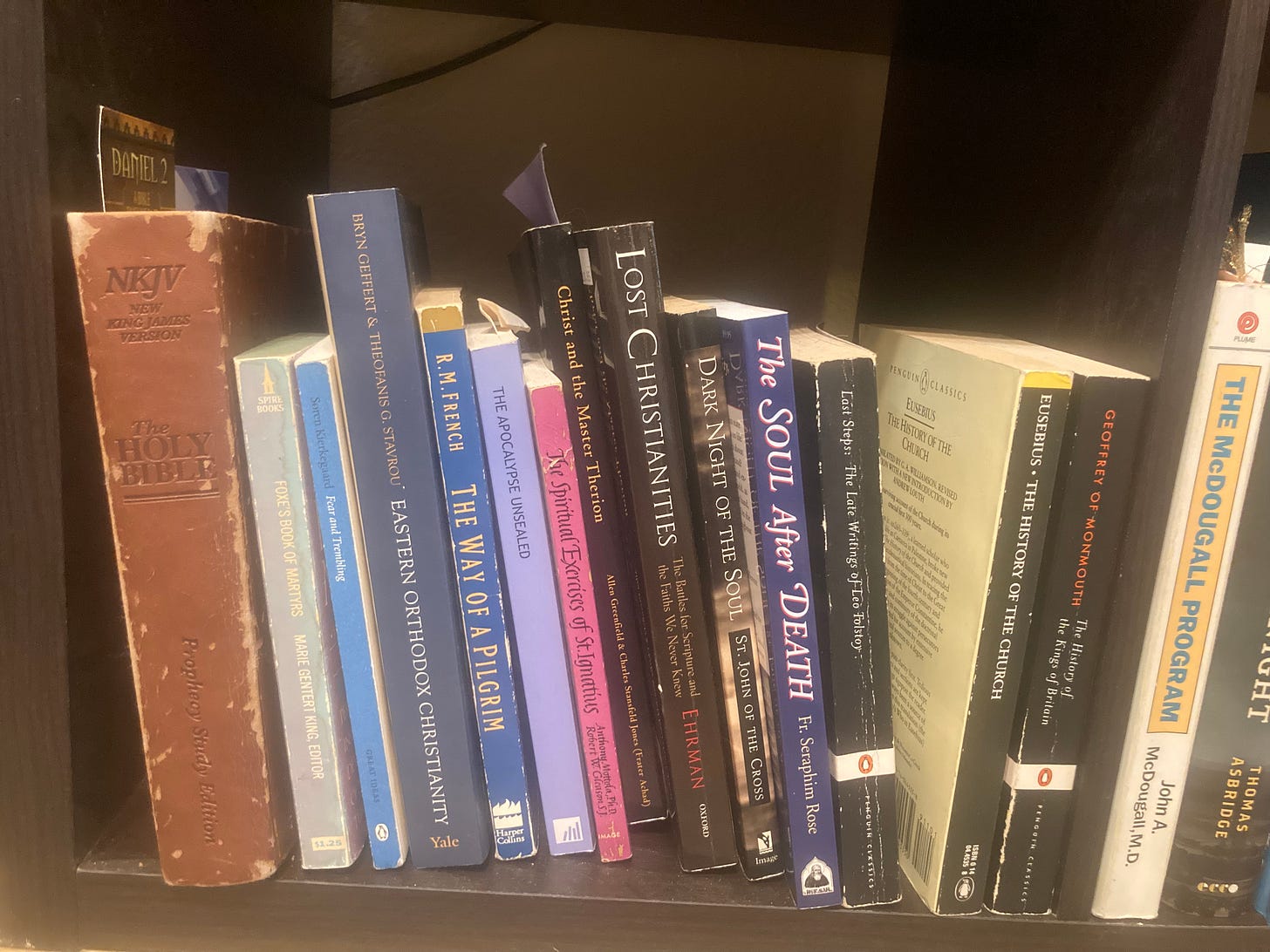The Fool: Reflections on Leaving One's Childhood Religion Behind
An open letter originally posted on Facebook on why I left the Seventh-day Adventist Church, why Atheism wasn't enough for me, and why I embraced "Rational Mysticism"
Many former Seventh-day Adventists and ex-Christians cite their reasons for leaving the Church. Frequently these reasons include hypocrisy, exclusivity, homophobia, intolerance, etc. Often times people leaving the church with these motivations will go “church shopping” until they find a congregation that is progressive enough for them, or that has a worship style or atmosphere that they prefer. Alternately, some will seek a church with a more traditional form of worship, finding refuge in more rigid structure. Some will leave the church all together in frustration saying, with “The Fool,” in their heart that “There is no God!” (Psalm 14). These were not the reasons that I left the church—though I came to the same conclusion as The Fool of Psalm 14.
The Fool is the First Card, assigned the number 0, in the Major Arcana of the Tarot. Each card of the Major Arcana is assigned a path on the Qabalistic Tree of Life (Etz Chaim) which connects a Sphere (Sephira) to another Sphere (Sephira). Together these paths and spheres make up a framework which can serve as a psychological-mystical model for the universe and human experience. The Fool is assigned to the path connecting the Sphere of Kether (The Crown) to the Sphere of Chokmah (Wisdom). Much more could be said about the Etz Chaim, but for the purposes of this essay I will digress here.
Following the paths on the Tree of Life model, this Socratic attitude of the Atheist—the sincere skeptic, must be the starting point to any knowledge. As the late Zen Master Shunryu Suzuki Roshi said, “In the beginner’s mind there are many possibilities, in the expert’s there are few.”
We must start by saying with Socrates that we know only that we know nothing. A vision of despair or a Trance of Sorrow may follow this realization for many.
“You will seek me and find me when you seek me with all your heart.” (Jeremiah 29:13).
“Ask, and it shall be given you; seek, and ye shall find; knock, and it shall be opened unto you: For every one that asketh receiveth; and he that seeketh findeth; and to him that knocketh it shall be opened.” (Matthew 7:7-8).
In my searching, with sincerity, I found my prayers were not answered in any convincing way. I found God to be silent. This was a deafening silence manifest as blindness to human suffering. Further, upon investigation and learning more of science, I found there was no good evidence for the God of my upbringing which stood up to objective scrutiny.
This was through no fault of anyone around me, my experiences with the Church were not negative on the whole. And so from there I immersed myself in philosophy to answer the questions any writer or sincere seeker must ask: Who? What? Where? Why? How?
Who am I? What is life and reality? Where is meaning to be found? Why am I here? How can I answer these questions?
Initially passing into an agnostic-atheism because I simply did not see a good argument for a God in the context of suffering or nature—the theological ideas around original sin and the Fall are easily refuted by paring them against each other, especially when free will is taken into account, and they fall into self-negation and circular reasoning; the ultimate refutation perhaps hinged for me on the deferential nature of positing a God vs. positing an unknown origin to the Universe prior to the Big Bang or the Singularity—and intellectual humility dictates that we answer this point with “I don’t know” rather than “I don’t know, therefore God—and specifically the God of the Bible—and more specifically this interpretation of that God of the Bible which I just so happened to be lucky enough to be born into.”
I did not find the usual arguments I heard convincing. I did not find any of the arguments of Thomas Aquinas, or C.S. Lewis convincing—as much as I respect their achievements and academic prowess, the arguments simply failed to convince when held to hard scrutiny, particularly with reference to and reverence for the limitations of human knowledge.
I poured through the philosophy of Richard Dawkins, Christopher Hitchens, Sam Harris, David Hume, Thomas Paine, Bertrand Russell, and Friedrich Nietzsche; I developed a layman’s appreciation for the scientific prose of Carl Sagan, Stephen Hawking, and Leonard Mlodinow. I learned more of the beauty and process of Evolution, of the irrefutable evidence in the genetic code that confirms and expands on Darwin’s theories (see Human Chromosome 2) and how the absurd representation I was given of these theories as a child and young adult were deeply biased, flawed, and very often flat out misrepresentations or willful ignorance bordering on pathological denialism.
This was all well and good, and I was now convinced of the scientific worldview, but I still needed more. I am not a scientist, even as an agnostic at heart I was a mystic. So I sought if there might be some practicable Truth in other ideas.
I had several experiences—tragic and ecstatic—which I won’t elaborate on publicly, which brought me to understand there was more to life than the everyday functional experience of reality—or at least that that reality had to be considered on a deeper level. Ultimately this brought me to a visceral understanding of the Four Noble Truths of Buddhism and I developed an interest in yoga and meditation.
I learned the basics of the Vedanta philosophy from Alan Watts’ books and lectures, I learned the fundamentals of the Four Noble Truths of Buddhism the truth of suffering, the truth of the cause of suffering, the truth of the end of suffering, and the truth of the path that leads to the end of suffering.
The fundamentals of Buddhism were apparently experientially true when stripped of dogma, and the practice of yoga and meditation created real solutions and real effects which could be appreciated in the actual world—the here and now—apart from the metaphysical baggage that these systems include.
Ultimately I came to see that there must still be room for the numinous, the Other. Certain things and experiences in nature—some of which may interact with brain chemistry—will make this abundantly clear to all but the most determined unimaginative and narrow minded Materialists. Synchronicity and direct experience began to happen when I engaged with the Universe around me in good faith.
Reading the writings of Aleister Crowley provided a skeptical roadmap to approaching the direct experience of True Religion. The mysticism I was always drawn to was there, but as I’ve so often heard it stated, I was not required to “check my brain at the door.”
All religion is invented—indeed! But just as the methods of yoga were invented, so are the methods of science. The fact of invention does not detract from the validity or efficacy of the method, although it certainly negates the concept of any one system holding a monopoly on the approach to Truth. Truth may exist objectively, but it can only be grasped subjectively.
As it is stated so eloquently by Crowley in Liber O: “In this book it is spoken of the Sephiroth and the Paths; of Spirits and Conjurations; of Gods, Spheres, Planes, and many other things which may or may not exist.
It is immaterial whether these exist or not. By doing certain things certain results will follow; students are most earnestly warned against attributing objective reality or philosophic validity to any of them.”
(I highly recommend a full reading of Liber O whether one wishes to engage with Crowley and Ceremonial Magick or not).
Today I am, and have been in some form or another since 2013, an avowed Thelemite and Perennialist. Perennialism posits a Mystic Truth reposing in the esoteric heart of all the great religions. This indicates an initiatory process whereby one may come to experience Reality, God, Satori, Samadhi, Knowledge and Conversation of the Holy Guardian Angel, Gnosis etc. The methods and the names for the experience differ but Perennialism holds that all these methods are effective if one is selected and followed through to the end. In this sense Agnosticism (unknowing) for me lead to a form of Gnosticism (knowing). A delightful irony.
It should be noted that this “Knowing” is personal and individual. My Gnosis is not your Gnosis, and my Thelema is not your Thelema. The limits of subjective experience and knowledge must be acknowledged and held as a first principle. This ability to accept the limits of subjective experience distinguishes the mystic from the schizophrenic, and it represents the greatest safeguard in all psychic and psychological exploration.
Thelema, as religion or philosophy, provides various methods for doing this Work independently or under a variety of organizations and initiatory bodies—this within a more recent methodology claiming eclectic roots connected with various traditions and providing a comprehensive framework.
As the Apostle Paul states in 1 Thessalonians 5:21 “Test everything, keep the good.” Without discounting the validity of the other systems, religions and methods, this more recent framework is considered by Thelemites to be the most efficacious method in our era—termed the Aeon of Horus by some. Whether or not that is true must be measured and decided by each individual for themselves. In the Thelemic framework, I have found this to be experientially true.
So indeed, “The Fool hath said in his heart there is no God!” But again, it is said “The foolishness of God is wiser than men.” (1 Corinthians 1:25). (There are very interesting points of contemplation contained here for those familiar with the Qabalah).
And so as Brad Warner the author of Hardcore Zen states it: “There is no God, and he is always with you.”









Really enjoyed this, Matt! The final quote reminds me of the Tom Waits quote: "The beauty of quitting [smoking] is that, now that I've quit, I can have one. Because I’ve quit." This is something I think about all the time in terms of religion. Now that I've quite, I can freely dabble in any religion and enjoy it all without any of the negative effects. Because I've quit. In the spirit of this, I need to think more about this idea of "rational mysticism" because it's a fascinating concept.